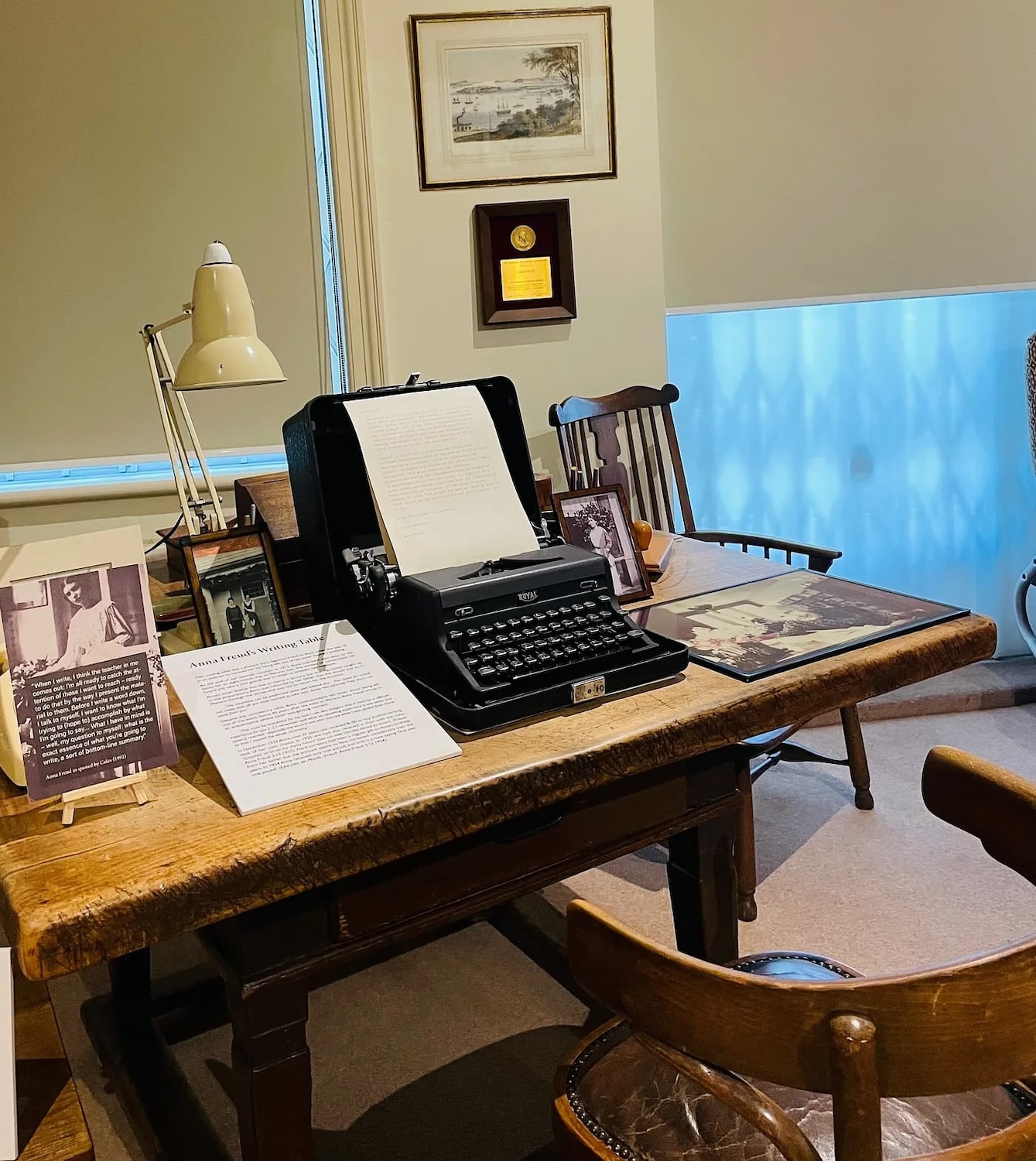Dear fellow therapist,
My recent visit to the Freud Museum in London was a most intriguing one for me as an enthusiast of the mind. I walked past the flower fields that prepared me for the abundance of insights that awaited upon my entering Freud’s house. The house is well-preserved and I saw glimpses of their taste and lifestyle through their artefacts and decor.
After visiting S. Freud’s room/office where the famous couch is placed, I went upstairs to meet “the other Freud” Anna Freud. Her office also had a couch which was simpler and more sober compared to S. Freud’s flamboyant red couch. On a typewriter placed on her table was inserted a letter addressed to one John who had asked her about the “essential personal qualities in a psychoanalyst”. Reading her letter to a young psychoanalyst eased my search for becoming a better therapist. (If you are not keen on my views jump right to the last part of this writeup for her letter.) I must clarify that I am not a Freudian. However, I take great interest in relevant advice that thinkers, philosophers, scientists, psychologists and sometimes well-read strangers on a train journey may have to offer, particularly with regard to humankind.
As an early-career therapist, I often find myself thinking about how I can meet the client where they are and do so as seamlessly as possible. Which psychology book can teach me about the socio-economic context of the demographic that I work with? How do I develop the much-needed cultural competence? Is one paper on psycho-social foundation of behaviour enough to see the client in context of social realities?
Some answers are intuitive and can only be arrived at through reflection and the practise of silence. Others can be found outside — out in the world full of events and experiences. Being in the business of mind entails much more than what SIMS’, Fish’s and our classification systems can equip us with. They have their place and respect must be given where it is due. Academic books are meant for knowledge acquisition; but to integrate that information and use it properly we would need the lens of introspection.
A. Freud urges us to “be a great reader and become acquainted with the literature of many countries and cultures”. So, pick up and read that local newspaper, that Victorian novel, that contemporary essay and do not believe if someone says these books are not useful in making you a better therapist. Go watch that movie in a language that is not known to you, follow pop culture curiously without drowning in it and see the trends on social media without getting sucked into it. Ask your milkman, grandmother, a four-year old and your dog about their views on the human mind.
Do everything in your capacity to be aware of your own prejudice, bias and ignorance. This invites you to sit with the discomfort and self-confrontations that you would avoid otherwise. A. Freud invites you to “place this appreciation of truth higher than any discomfort”. Know more about your privilege and learn the history of oppression. Do not collect qualifications, certifications and CREs like they are trophies. Give your mind and body enough time to absorb the information that you have fed it. Let it incubate, let it pass through the prism of your own personal, social and spiritual experiences. The synthesis and integration of the pieces of information that you have will give rise to a meaning that is unique to your process.
Learn to hold conversations about art, nature and everyday things in your personal life. Work towards being grounded in your own body and mind to effectively draw on your insights while having these conversations so that they become more meaningful. The skills needed for psychological treatment are not meant to be developed over two years of formal training — there is also no shortcut or magic potion for this — rather it takes years. The journey has just begun. Keep in mind to “do no harm” and continue to do your best to meet the client where they are before you plan how to help them. Learning to engage and contain the interactions within a therapy session is a lesson that you will continue to learn till your last session. Like Anna Freud says “have a great love of the truth, scientific truth as well as personal truth”.
Anna Freud’s letter
Dear John,
You asked me what I consider essential personal qualities in a future psychoanalyst.
The answer is comparatively simple. If you want to be a real psychoanalyst you have to have a great love of the truth, scientific truth as well as personal truth, and you have to place this appreciation of truth higher than any discomfort at meeting unpleasant facts, whether they belong to the world outside or to your own inner person.
Further, I think that a psychoanalyst should have interests beyond the limits of the medical field in facts that belong to sociology, religion, literature and history, otherwise his outlook on his patient will remain too narrow. This point contains the necessary preparations beyond the requirements made on candidates of psychoanalysis in the institutes. You ought to be a great reader and become acquainted with the literature of many countries and cultures. In the great literary figures you will find people who know at least as much of human nature as the psychiatrists and psychologists try to do.
Does that answer your question?
Yours sincerely
Anna Freud
